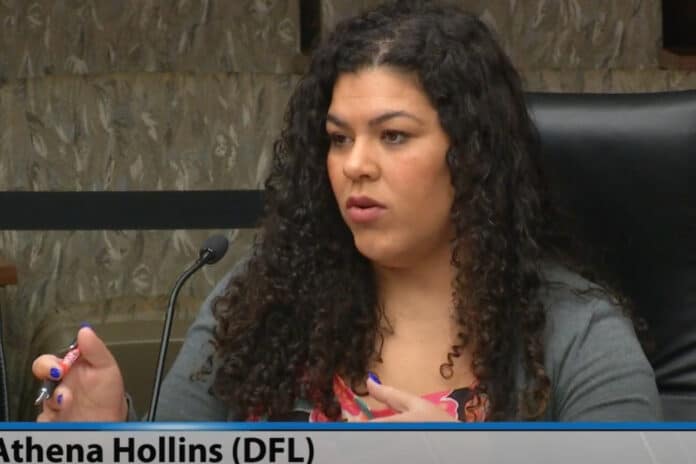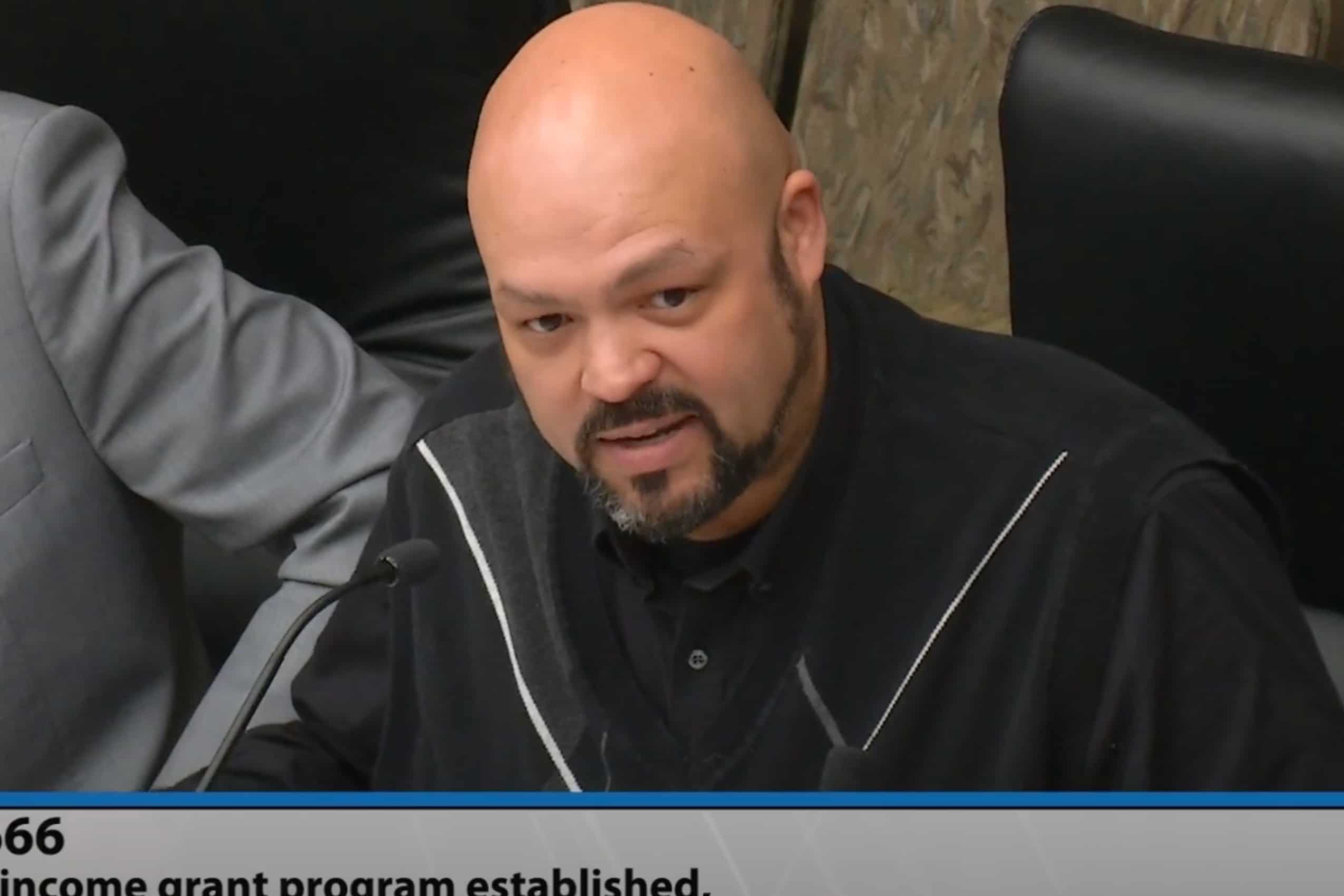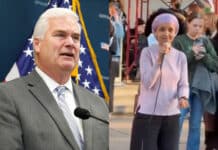
A universal basic income pilot program that would sprinkle $100 million across the state in the form of no less than $500 monthly cash payments to certain low-income Minnesotans — including illegal immigrants — advanced in a state House committee on Tuesday.
Rep. Athena Hollins, DFL-St. Paul, introduced HF2666 last year. The bill didn’t receive a hearing amidst a historic legislative session where Democrats spent down a $17.5 billion surplus and increased the state budget by more than 38 percent. But with news earlier this month that the state has a projected $3.7 billion surplus, Hollins’ bill received a hearing in the House Children and Families Committee.
The bill passed through the committee on a voice vote. Its next stop is the House Human Services Finance Committee. Its Senate companion bill is sponsored by five Senate Democrats and has yet to be scheduled for a hearing.
“In general, this is a basic income grant program for the entire state of Minnesota,” said Hollins, a two-term lawmaker who represents portions of north St. Paul that run from the Como neighborhood to just east of I-35E.
Hollins told her legislative colleagues during the Tuesday hearing the proposal would constitute a “pilot program” that would make $100 million available to non-profit organizations, tribal governments and municipalities to run their own locally based UBI grant programs. The proposed statewide UBI initiative somewhat mirrors a pilot program the city of St. Paul instituted in 2020 and then expanded in 2022, where a select number of residents received basic monthly income to aid their day-to-day living expenses.
To date there are more than 80 municipalities across the nation that have instituted some form of UBI for select residents.
The program would provide direct monthly cash payments of at least $500 for 18 to 24 months to Minnesotans receiving public benefits or with an income at or below 300 percent of federal poverty guidelines. It also calls for the creation of a “community of practice basic income cohort” that would aid local governments in start-up and implementation phases of their UBI grant programs.
One caveat of the bill language that irked some Republican legislators was its prohibition on any grant-receiving governments or non-profits from requiring “any other income, proof of residency or citizenship, or identifying documentation of any recipient.”
“This program very explicitly would provide support to illegal immigrants or persons claiming to be someone other than they actually are — we’re not even going to question that. There’s not going to be any documentation whatsoever,” said Rep. Walter Hudson, R-Albertville, who suggested that such a program should be run through the Department of Revenue, and not local government and nonprofit “middlemen.”
“Why aren’t we doing this in a way that’s simpler, more secure, gets the job done in a way that’s verifiable and actually verifies the people who we’re providing these funds to?”

A handful of testifiers spoke in favor of the program, including Laura Zabel, executive director for Springboard for the Arts, a non-profit that provides basic income to dozens of Minnesotans it calls “artists and culture bearers and creative workers.”
One recipient of Springboard’s UBI in Fergus Falls, artist Jess Torgerson, submitted written testimony explaining that her $500 monthly UBI payment helped her cut back on her 60-hour a week job so she could make sculpture art from “found materials, making use of things that are being wasted,” and volunteer with arts programs in her community.
“Even a small basic income creates freedom, and Minnesotans use that freedom to explore what shared prosperity can look like,” said Zabel.
Rep. Ben Davis, R-Merrifield, said he’s concerned such a program expanded to statewide recipients would be ripe for abuse.
“I’ve worked in alcohol and drug abuse recovery programs for 12 years, and I’ve seen a lot of abuse with government funds being spent on peoples’ addictions,” Davis said. “I would highly encourage us to have something in here that says, ‘Hey, you got to turn in some receipts on what you are spending this money on.’ We need more accountability.”
Rep. Carlie Kotyza-Witthuhn, DFL-Eden Prairie, dismissed the notion that the program should require tracking how recipients of UBI spend their monthly payments.
“How do we determine what $500 people spent on drugs?” Kotyza-Witthuhn said. “How do we determine what $500 people spent on a couch? How do we determine what $500 of the money they have is spent on food or childcare?”
Kotyza-Witthuhn also said she supports “undocumented immigrants” living in Minnesota having access to the program, which is allowed for in the bill’s language.
Hank Long
Hank Long is a journalism and communications professional whose writing career includes coverage of the Minnesota legislature, city and county governments and the commercial real estate industry. Hank received his undergraduate degree at the University of Minnesota, where he studied journalism, and his law degree at the University of St. Thomas. The Minnesota native lives in the Twin Cities with his wife and four children. His dream is to be around when the Vikings win the Super Bowl.














